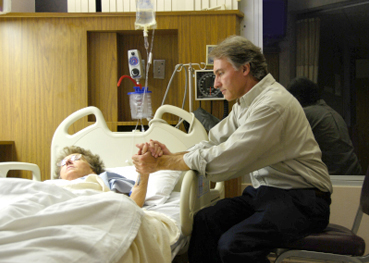
Providers who are trained to discuss advance care planning for people with dementia have significantly more — and more productive — conversations with patients and caregivers, say investigators.
A group of 38 general practitioners were instructed using a model that begins with a discussion of care goals and values and leads stepwise to patient decision-making. The purpose of the training is to keep the physical, social, spiritual, and psychological concerns of the person with dementia in mind, wrote first author Bram Tilburgs, MSc, Radboud University Medical Centre, the Netherlands.
When participants used their new skills in practice, more patients with dementia had advanced care planning conversations documented in their medical files than the control group (49% versus 14%). There was also an increase in the number of medical and non-medical preferences discussed. These included resuscitation and hospitalization as well as activities and social contacts.
The findings support a recently proposed shift from mainly discussing future medical treatments and end-of-life preferences to addressing all domains of palliative care, wrote Tilburgs and colleagues.
“People with dementia’s preferences for discussing nonmedical issues may indicate that living well with their condition is their aim and that they find a focus on maintaining their capabilities at least as important as discussing medical issues,” the researchers concluded.
The study was published in the June issue of JAMDA.




